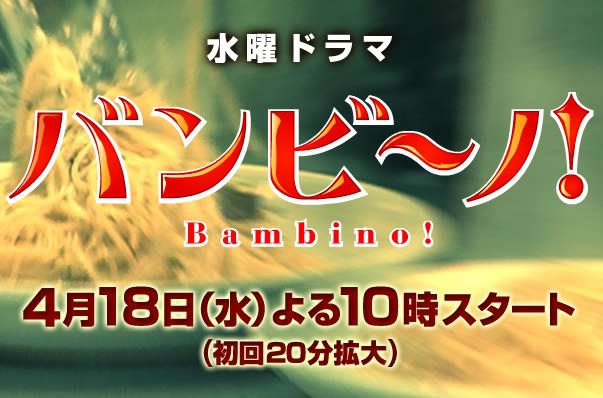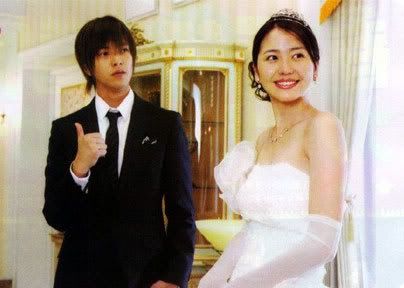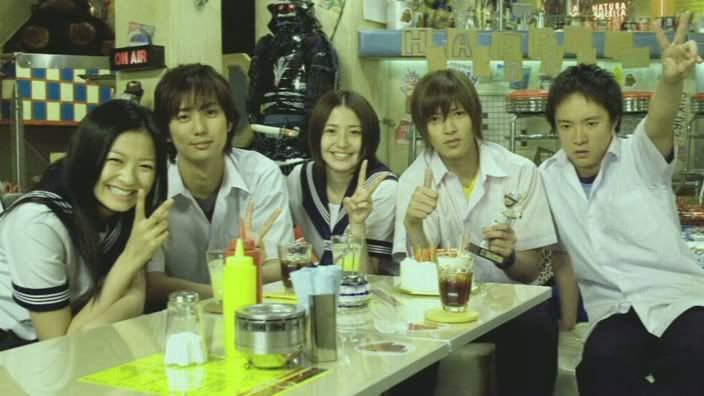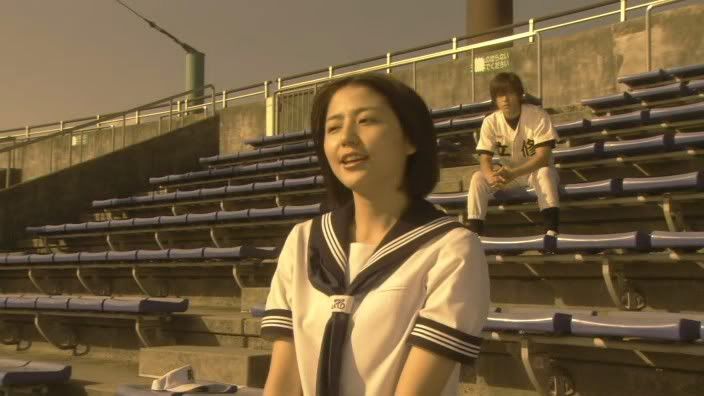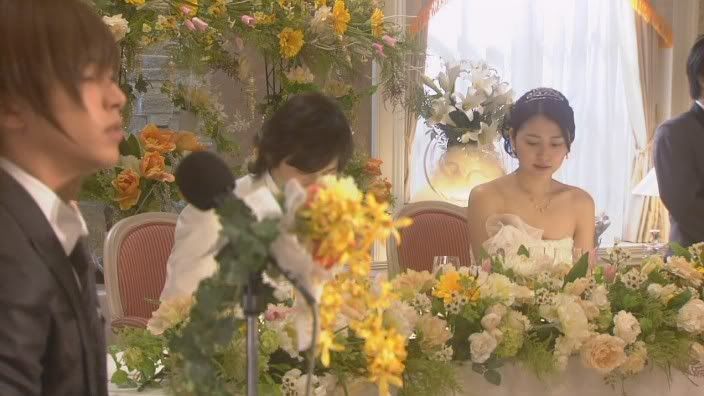
Cast:
* Matsumoto Jun as Ban Shogo
* Karina as Hibino Asuka
* Sato Ryuta as Katori Nozomi
* Uchida Yuki as Shishido Miyuki
* Sasaki Kuranosuke as Kuwabara Atsushi
* Kitamura Kazuki as Yonamine Tsukasa
* Ichimura Masachika as Shishido Tekkan
* Hoshan (ほっしゃん。) as Oda Toshio
* Mukai Osamu as Senoo Masashi
* Komatsu Ayaka as Minakawa Kozue
* Yamamoto Kei as Endo Susumu
* Fukiishi Kazue as Takahashi Eri
* Sasaki Takao (佐々木崇雄) as Nagai Hirokazu
* Sato Yusuke as Takanashi Hiroshi
* Asou Kousuke (麻生幸佑) as Shibata Kenichiro
* Toda Keiko as Nogami Kyoko (eps. 5-7)
* Ikeuchi Hiroyuki as Hayama Yasuhide (ep. 7)
Move over, Kim Sam Soon or whosoever cooking/baking brain our century has to offer. I know this Jdorama has been out for quite awhile and it took me ages before I got to do a review for it, but I must say, it’s been worth the wait for after all the pondering on the poignant panorama of my life, Japan surely has given us a wonderful and visually delightful series that we could be gluttonous about.
Bambino is an Italian word for a playful baby who is very innocent and ignorant of the world. And if I would use my educational wits, the drama is a good material for Sociology/Psychology 101. I did base one of my analyses from Erik Erikson’s Psycho-social theory, except that age doesn’t count. Take it in an analogical sense. Ban Shogo (Matsumoto Jun) came into the real world of cooking when he decided to leave Fukuoka and face up to the narrow and intimidating streets of Tokyo, particularly Trattoria Bacanale (where he was referred to by his mentor, Endo Shin). The conflict starts when he thought that his arrival at Baccanale would fulfill his long time dream of becoming a real chef has turned out to be the reason why he would be left with broken wings.
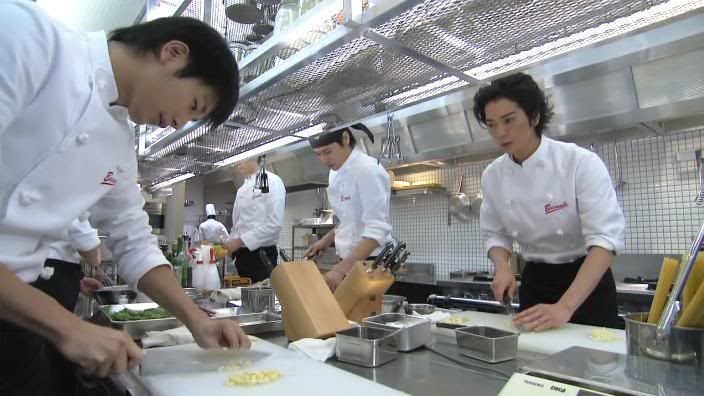
As the saying goes, we rise after we fall. And so did Ban. With the instinctive help of the people around (Katori, Asuka, Kuwahari, Yonamine, Masashi, Mizuki, Oda and of course, Shishido Tekkan
), he was able to fulfill his dreams in the end.
But I’m not after Ban Shogo’s dream becoming a reality. What I admired about in this drama is the journey towards that dream. I’ve mentioned that this series could be a great material for Sociology classes because it does not only show how the insatiable human mind works but also how one plays around in a given situation and place. The series is a 12-episode-long-lecture on how one should live his or her life, purposely, his or her work.
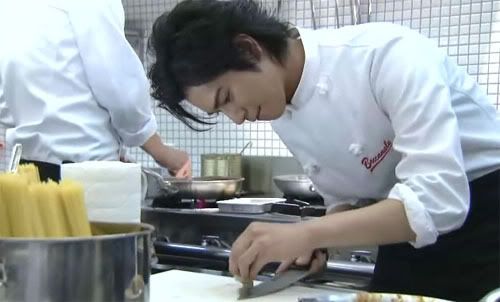
And doing the review is quite timely for I am in the latter part of a long hiatus (I love the word compared to vacation) in work. It’s a pretty boring one, save for the time I can watch great films and series such as this. Anyway, I’ve been doing a lot of thinking about work, and this drama has made sure that I will be saved from all those negative assessments and the wrong path I could be propelled into because of, uhm, too much thinking.
Yoroshii!!! So here are some of the great lines that struck me the most while watching:
1. Rhetorical question
“You’re Japanese, why do you like Italian food?” (when Chef Tekkan recalled his journey in Italy and he was asked by an Italian about his passion about Italian food. In the end, he didn’t give any answer at all).
2. Be responsible
“When things go bad, you don’t say it’s his fault, or the situation’s fault, or somebody’s fault. After all, we chose this work ourselves. So it can’t be anyone else’s fault. So if things don’t go well, you are always accountable. Things become simple, if you think like that.” (Tekkan talking to Bambino)
3. Fix the present, then dream
“Those people who can’t focus on their work in front of them don’t deserve to dream about their future” (Kuwahara-san to Bambino when the latter despised the fact that he was hired as a waiter)
4. Everyone is a bambino
“Let’s go somewhere…together and be bambinos again” (Tekkan to Endo-san when the former was surely envious of Bambino’s failure and hard work)
5. Sacrifice
“It hurts but I’ve gained myself again” (Bambino, after quitting the summer menu competition. It was the time when he realized that the competition is ruining his work because he was voracious about winning. He decided to give it up even if it calls to open the door to become a chef).

My favorite line would be that of Bambino when he was conversing with his ex-girlfriend, Eri about work. They were talking about how hard work is. He trailed back his life in school when everything was easier yet you are forced to go to school no matter what. With work, it’s the same except for the fact that it is harder. But the most fulfilling part about work is when one has overcome the long fight of working. That is the time when one is no longer concerned about losing work. One can easily quit not because work is hard and it is the only way to live but the fact that work is already life itself.
There are a lot of memorable scenes that I’m sure everyone who works can relate to. One would be the feel of monotony. Bambino came to a point wherein he was alarmed after talking to his ‘senpai’ about missing out on different things: movies, music, and the array of worldly pleasures the society has to offer. He was too focused in cooking that his senpai thinks he is wasting his youth away. And that’s the time when Kuwahara-san told him that wanting something means sacrificing something as well.
I love it when the three pillars of Baccanale would be doing their so-called analysis of the events that are happening in the restaurant. It’s as if they are reporters on an action-packed scene, most of the time, Bambino’s life. One of the last scenes was Bambino informing them that he would be leaving for Italy, as soon as possible. They took pleasure in how vigorous and excited Bambino was that his words were jumbled and all cluttered. Then Kuwahara-san mentioned that Bambino is always on the run (literally). His literal ‘run’ was fastened with a figurative expansion of how young people are: ravenous and eager.
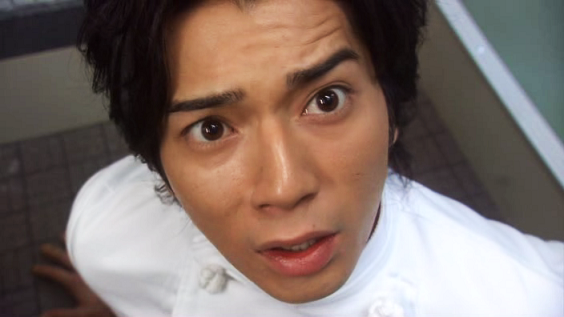
The only imperfection about this drama is Bambino/Matsumoto Jun himself. He’s really bad at acting. I’m a big fan but his smile and his contorted face when crying terribly brought the momentum to a flat end. His exaggerated acting in Hana Yori is continually reflected in the drama.
The story-line and the dialogue were faultless. They were very lifelike, convincing and reasonable. I definitely benefited from Katori’s slap on the wrist when he told Bambino the harsh truth that you work for yourself and not for this or any restaurant. Work is a long journey. One can’t stand still because a lifetime is not enough for all of us to discover something new and become bambinos all over again…and again.
